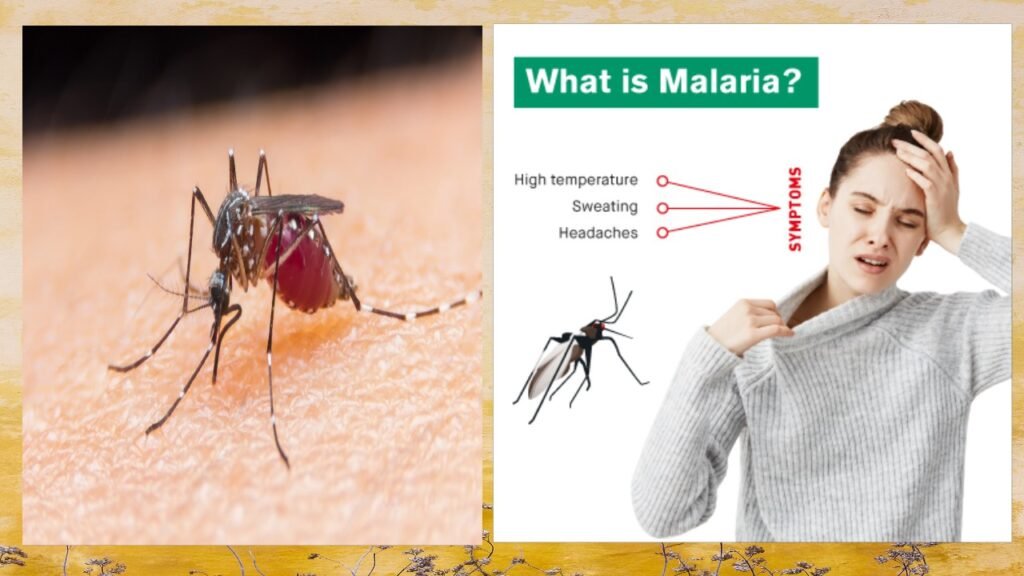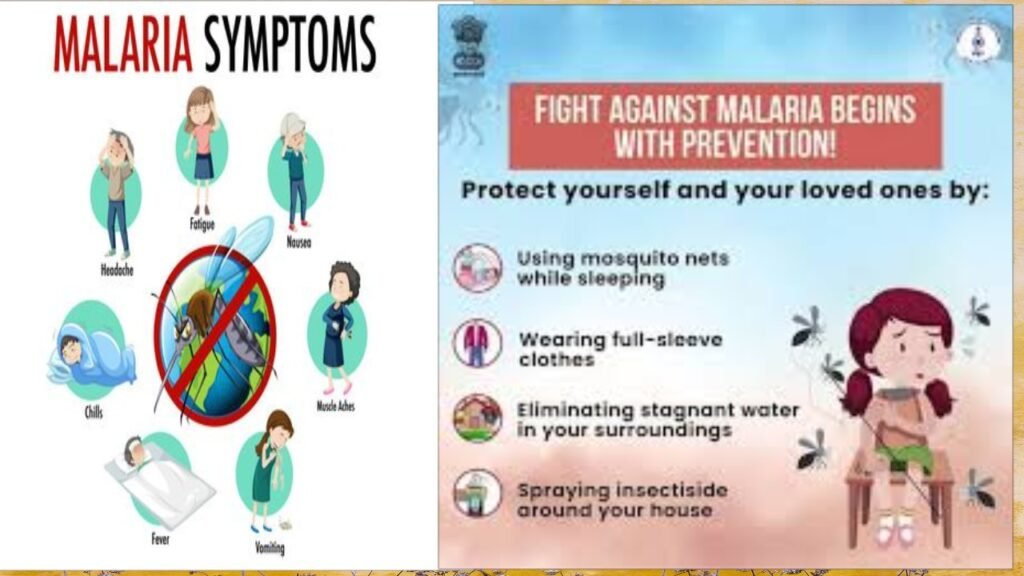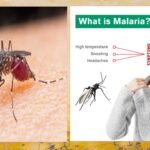What is Malaria Fever?
Malaria is a serious and sometimes life-threatening disease caused by a parasite that is transmitted to humans through the bite of an infected female Anopheles mosquito. The disease is caused by the Plasmodium parasite, which enters the human body through the mosquito’s bite. Symptoms of malaria can include fever, chills, sweating, headache, muscle pain, fatigue, and vomiting.

************************************
Causes and Symptoms of Malaria
The main cause of malaria is the bite of an infected female Anopheles mosquito, which transmits the Plasmodium parasite to humans. Symptoms of malaria typically appear 10-14 days after the mosquito bite.
***********************************
Types of Malaria
There are several types of malaria, including:
- Plasmodium falciparum: This is the most dangerous type of malaria, which can affect the brain and other vital organs.
- Plasmodium vivax: This is a common type of malaria, which is usually less severe but can still cause serious symptoms.
************************************
How Does Malaria Spread?
Malaria spreads primarily through the bite of an infected female Anopheles mosquito. When an infected mosquito bites a person, it injects the Plasmodium parasite into their bloodstream. The parasite then travels to the liver, where it multiplies rapidly. From the liver, the parasite re-enters the bloodstream and infects red blood cells, causing fever and other symptoms. This cycle of transmission can continue when an infected person is bitten by another Anopheles mosquito, which then becomes infected and can spread the disease to others.
************************************
🔬 Causes of Malaria
- Mosquito Bite: When an infected female Anopheles mosquito bites a person, it transmits the malaria parasite into their body.
- Transmission through Mosquito: When a mosquito feeds on the blood of an infected person and then bites a healthy person, it transmits the infection to the healthy individual.
- Mother-to-Child Transmission: A pregnant woman with malaria can transmit the infection to her unborn child.
- Contaminated Needles and Syringes: If needles and syringes used for treating malaria patients are not properly sterilized and are reused, they can transmit the infection to others.
***********************************
🤒 Symptoms of Malaria
- The symptoms of malaria typically appear 10-15 days after the bite of an infected mosquito.
- A person infected with malaria experiences recurring high fever that comes and goes.
- When the fever rises, the person infected with malaria feels chills and shivering.
- After taking fever medication or when the fever breaks, the person infected with malaria experiences excessive sweating.
- A person suffering from malaria experiences vomiting and persistent headache.
- A person suffering from malaria feels muscle pain and fatigue.
- A person suffering from malaria may experience eye irritation or jaundice (in severe cases).
- A person suffering from malaria may occasionally experience diarrhea
**********************************
What are the 5 causes of malaria?
Malaria in humans is caused by five related protozoan (single-celled) parasites: Plasmodium falciparum, P. vivax, P. ovale, P. malariae, and P.
********************************
Where is malaria a risk?
Yes, malaria is generally a curable disease, especially when diagnosed and treated promptly with appropriate antimalarial medications. However, the effectiveness of treatment can depend on factors like the specific parasite causing the infection, the severity of the illness, and the speed of diagnosis and treatment.
********************************
🛡️ Prevention of Malaria
- Use mosquito nets at home to prevent malaria, and also use mosquito repellent creams or liquids.
- Keep the surroundings clean and avoid stagnant water to prevent mosquito breeding and malaria.
- Install nets on windows to prevent mosquitoes from entering the house and to protect against malaria and dengue.
- Plant tulsi, neem, or lemongrass around the house to repel mosquitoes.

*****************************
How to cure malaria faster?
Exchange blood transfusions may be considered for treating severe cases of malaria. They are the quickest way to remove parasites. Blood is taken from you at the same time that you receive donor blood. You also get medicine to treat the infection.
***************************
Who cannot take malaria pills?
- Cannot be used by women who are pregnant or breastfeeding a child less than 5 kg.
- Cannot be taken by people with severe renal impairment.
- Tends to be more expensive than some of the other options (especially for trips of long duration)
- Some people (including children) would rather not take a medicine every day.
**************************
Can malaria be fully cured?
Malaria can be treated with anti-malarial medications. Treatment depends on different factors, such as the type of malaria parasite and the severity of the disease. If the disease is identified early and treated, almost all cases can be completely cured
**************************
What is Malaria Fever? What is Malaria Fever? What is Malaria Fever? What is Malaria Fever?
https://pram123.com/how-many-days-does-dengue-fever-last/
https://www.ncbi.nlm.nih.gov/books/NBK551711/
What is Malaria Fever? What is Malaria Fever? What is Malaria Fever? What is Malaria Fever?










